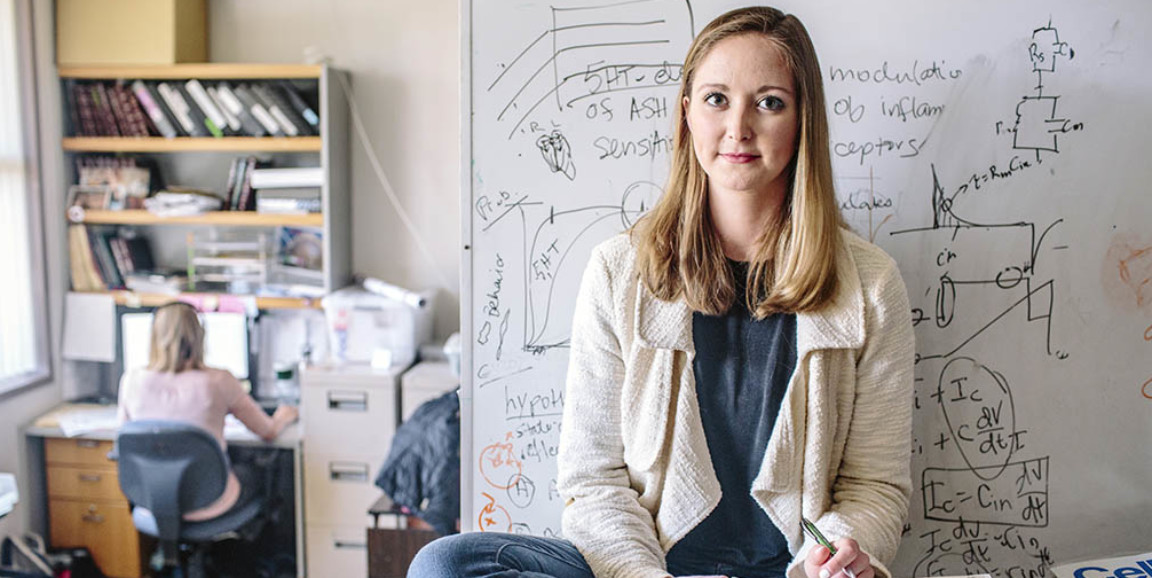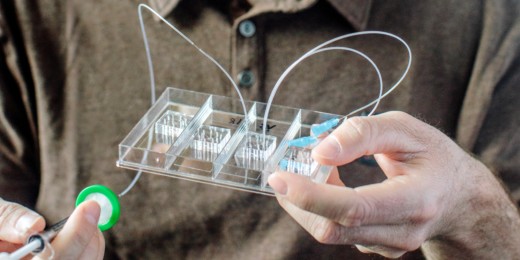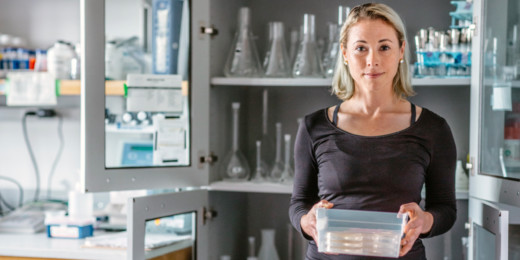For my story "Life in a lab" in the latest issue of Stanford Medicine, I spent quite a bit of time with the people working in the Wormsense Lab of Miriam Goodman, PhD. Here, I'm telling a bit more of some of their stories.
Today we're featuring Dail Chapman, PhD, a postdoctoral scholar, who came to the lab planning to eventually teach science at a liberal arts college. (A mug above her desk reads, "I became a teacher for the money and fame.") As she told me, though, she had some trepidation about revealing her long-term plan when Goodman interviewed her for her current position in the lab.
From Chapman:
I was super apprehensive about even bringing up teaching because I think, as scientists, the expectation is that you want to become a renowned researcher. So I was talking to my [former] boss about how I should conduct the interview, and whether I should be honest about my career pursuits, and he told me, "No."
But it just didn't feel right to essentially lie to someone who may become my future boss. And it's not in my character. So when she asked what I saw myself doing, I totally let my guard down and let my passion for teaching come through, and it was a nerve-wracking moment. You would think that would be a problem. And instead, it wasn't. She said, "No, I love teaching and I like to teach every chance I can get. I went to a small liberal arts college too, and I know what it's like to be in that environment where teaching is at the center of the institution's goals."
I do the research partly because I find it very interesting. I love to think about how we work as human beings, and in this lab particularly, how our nervous system works and our neurons work. It's also fun. ... But I also do it because it's a step in my career path and I think to be a good teacher you have to have experience with good science. And the only way to do that is to do the science.
Anything that bores me? I think the days where you're just in the middle of three different experiments that you've done before, so you're not working yourself mentally. It's a little bit of a battle as a scientist, because what happens in those moments is you have an inner dialogue with yourself and you start to predict [and ask yourself], OK, what's going to go wrong and how can I fix it? And if you spend your days thinking about what could go wrong, it's not really mentally healthy. So finding ways to keep that conversation at a minimum and just do the task you need to do without making mistakes is how you can combat that boredom.
Failure is just part of science, and for me it's just a test of persistence and a test of using my resources and using my own brain to figure out what's going wrong in order to get it right. But that's been a huge struggle for me with science and something that's really turned me on to teaching; you can work for years and years on a science project and it's nothing in your control, it's just not going to work. And so I think teaching offers that kind of daily sense of reward and [the feeling] that I've spent my time well.
Photo by Timothy Archibald






